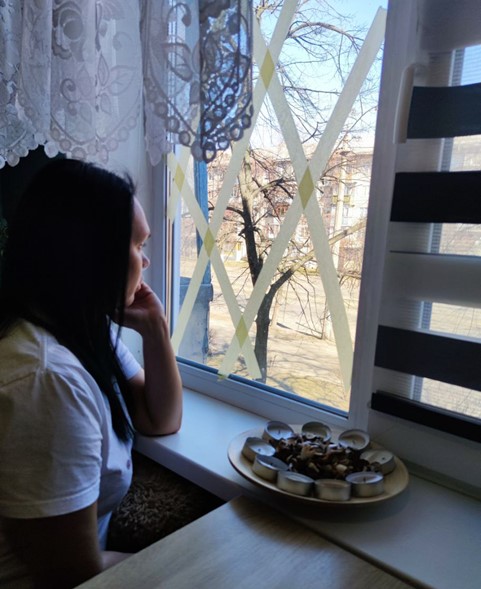
Elena Shchepeleva, Positive Women charity worker, Kyiv, Ukraine
“I have been living in Kyiv for 7 years since the war started in my hometown of Luhansk. On February 24, 2022 my family’s life was split into ‘before’ and ‘after’. Unfortunately for us it was the second time in our lives, but this time we have decided not to go anywhere and to stay in Kyiv, which had already become our home town.
I knew clearly that I could be useful here in Kyiv. I have been working for 5 years at Positive Women, a charity organization that provides services for HIV-positive women. Our organization has always been a haven for our female clients, including during this difficult time. Most HIV-positive women in Kyiv and Kyiv region are in a very difficult situation. Medical care is difficult to obtain in war conditions and those who are sick are in greater need of medication. Many have lost their jobs and have no money to buy food, hygiene products and seasonal clothing. Those who lived in rented flats are forced to move to modest accommodation or leave the city. Those women who have left the city and the region continue to receive our support. We try to find volunteer transport, look for money for fuel, which has become very expensive, and deliver it to villages.
Our women were very confused, they were scared, some could not cope with the shock, they had panic attacks. My phone and my colleagues’ phones were ringing off the hook. Women were asking about how to get ARVs, bread, which shelter to go to, what to bring with them? We provided advice on basic safety rules and psychological support.
Thanks to the volunteer movement, we organised the delivery of medicines, essential items, and food for the more vulnerable women. Twice a week we hold online support groups, where participants exchange useful information and experiences and can simply cry and realise that they are not alone. We are in constant online contact through a closed Facebook group called “Kyianka+”.
We started to use accompanying counselling during the evacuation of women and their children. Some women just couldn’t make up their minds to leave. The reasons varied: “I don’t want to leave my husband and eldest son”, “This is my home, why should I leave it” or just guilt for the fact that they would be safe. All of these barriers were overcome by accompanying counselling and helping women with children to evacuate”.



